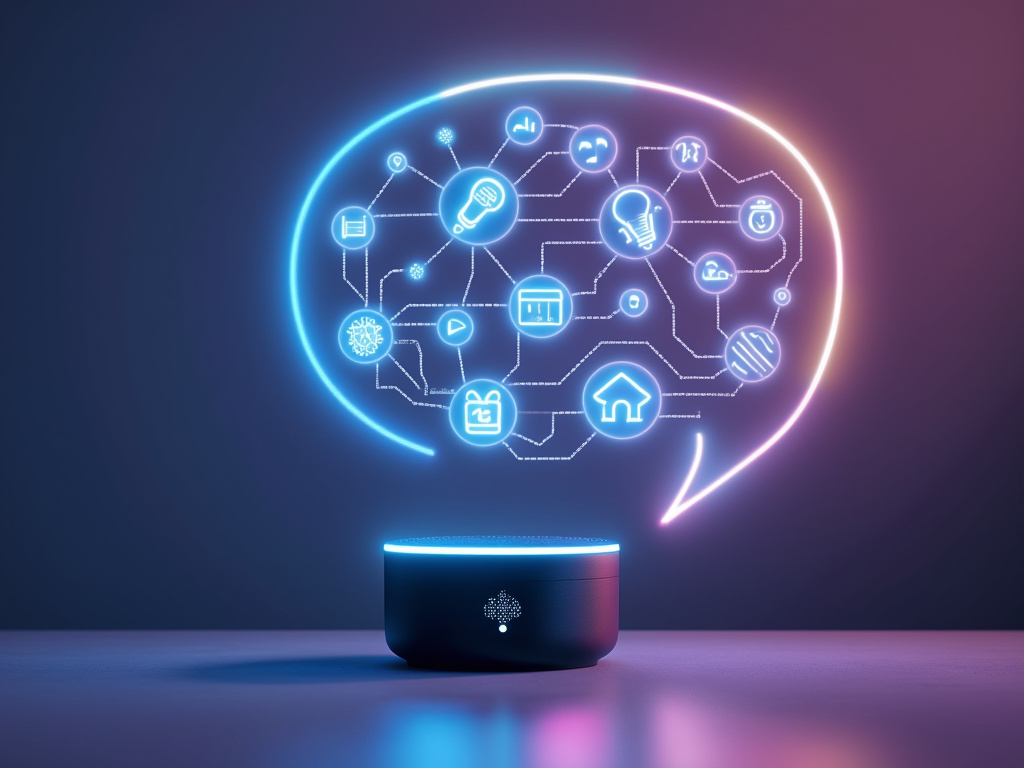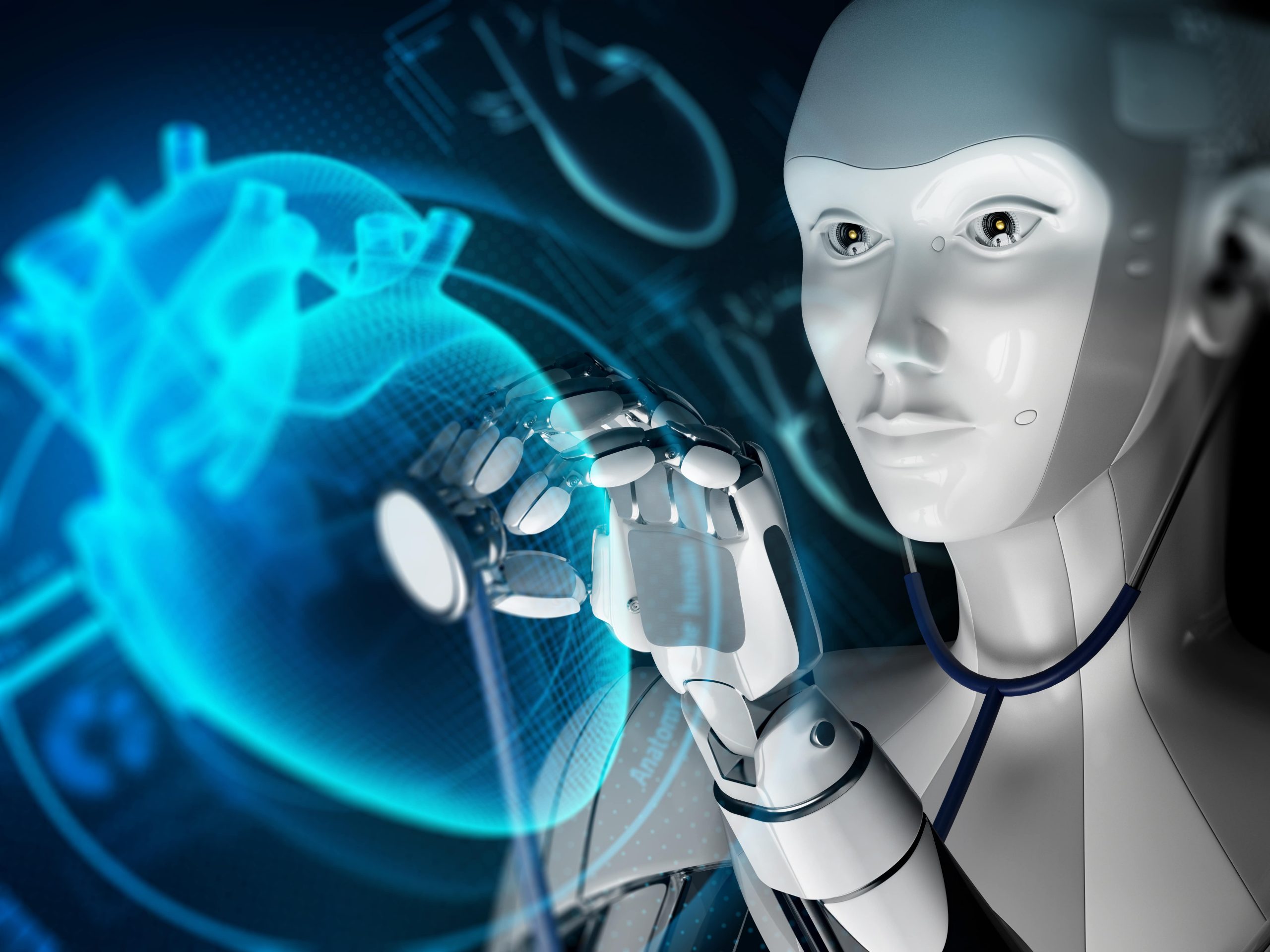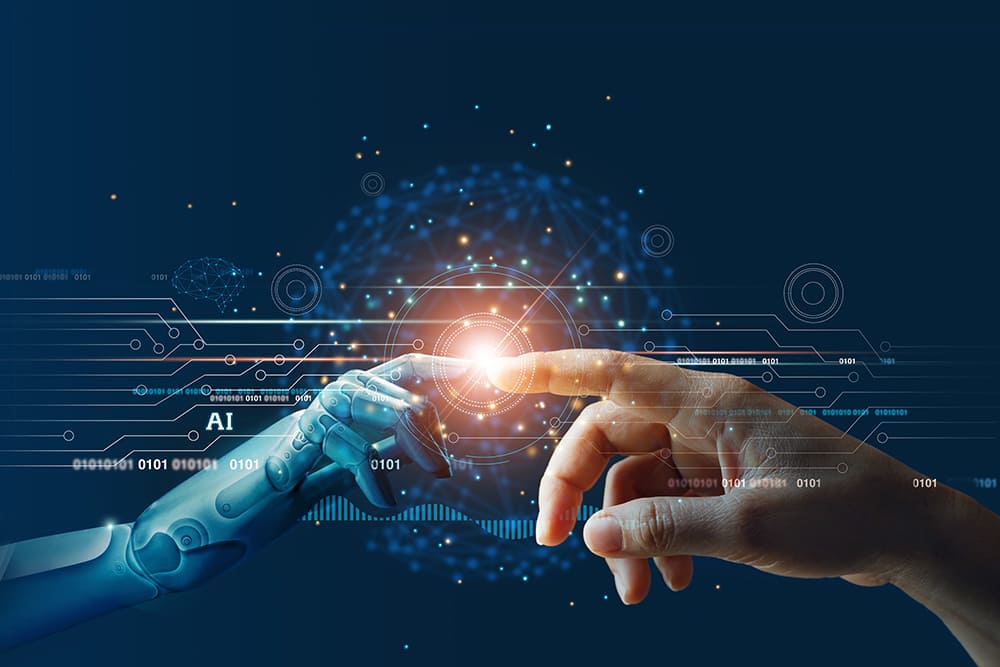Intelligent Agents in Everyday Life
Intelligent agents are seamlessly integrating into our lives, from the moment we wake up to when we go to bed. These AI-driven entities have become indispensable, enhancing our homes, workplaces, and personal devices.
Imagine starting your day with a personalized news briefing, curated by an AI that understands your interests. As you commute, a voice assistant guides you through traffic, suggesting the optimal route based on real-time data. Throughout the day, these digital companions anticipate your needs, from scheduling meetings to recommending the perfect playlist for your afternoon workout.
But what are these intelligent agents, and how deeply have they penetrated our lives? At their core, they are sophisticated software programs designed to perceive their environment, make decisions, and take actions to achieve specific goals. Unlike traditional computer programs, these AI-driven entities can learn, adapt, and improve over time, making them increasingly adept at assisting us in various aspects of our lives.
This article explores the myriad ways intelligent agents are reshaping our daily experiences. From voice-activated assistants that manage our smart homes to algorithms that personalize our entertainment choices, we’ll examine the applications that are making our lives more convenient, efficient, and tailored to our preferences.
The future is here, powered by intelligent agents that are quietly transforming the way we live, work, and interact with the world around us.
Voice Assistants: Simplifying Daily Tasks


Voice assistants have become indispensable digital companions, streamlining our daily routines with remarkable efficiency. Siri, Alexa, and Google Assistant are always ready to assist with a simple voice command.
These intelligent agents have changed how we manage our day-to-day tasks. Imagine rushing to get ready for work, hands full with your morning coffee and briefcase. A quick “Hey Siri, what’s the weather like today?” ensures you’re prepared for whatever Mother Nature has in store. No need to fumble with your phone or squint at a weather app—your AI assistant has got you covered.
Weather updates are just the beginning. Voice assistants excel at keeping our lives organized.
“Alexa, remind me to pick up milk on the way home,” you might say as you head out the door. Later, when you’re engrossed in your workday, Alexa will remind you about the dairy run, ensuring you don’t return home empty-handed. Music lovers, rejoice! Gone are the days of scrolling through endless playlists. A simple “OK Google, play some upbeat jazz for my workout” transforms your living room into a personalized fitness studio.
These AI DJs understand your preferences and can set the perfect soundtrack for any mood or activity. The true magic of voice assistants lies in their ability to learn and adapt. The more you interact with them, the better they understand your habits and preferences. It’s like having a personal secretary who never takes a day off and is always improving at their job. As research shows, voice assistants are becoming increasingly prevalent in our daily lives.
From setting alarms and timers to controlling smart home devices, these AI helpers are constantly expanding their repertoire of skills. While voice assistants may not yet be perfect—we’ve all had those moments where Siri hilariously misunderstands a request—they’re evolving rapidly.
As AI technology advances, we can expect these digital helpers to become even more intuitive and capable, further simplifying our daily lives and freeing up our time for what truly matters. So the next time you’re juggling multiple tasks, remember your ever-present AI sidekick. Whether it’s Siri, Alexa, or Google Assistant, they’re just a voice command away, ready to make your day a little bit easier. After all, in the symphony of daily life, sometimes it’s nice to have a conductor who never misses a beat.
Personalized Recommendations: Enhancing User Experience


Discover top companies and their follower counts. – Via aimultiple.com
Personalized recommendations have become a cornerstone of user experience. Services like Netflix and Spotify harness the power of artificial intelligence to curate content tailored to individual preferences, transforming how we consume entertainment. These intelligent systems analyze vast amounts of data to suggest movies, music, and other content that align with our tastes, creating a more enjoyable and engaging experience.
Netflix employs sophisticated AI algorithms to understand viewer habits. By analyzing what you watch, when you watch, and even how long you watch, Netflix’s recommendation engine creates a unique profile of your preferences. This data-driven approach allows the platform to suggest content you’re likely to enjoy, from binge-worthy series to hidden gem movies you might have otherwise overlooked.
Similarly, Spotify has revolutionized music discovery through its AI-powered recommendations. The streaming service doesn’t just consider the genres or artists you listen to; it dives deeper, analyzing factors like tempo, acousticness, and even the time of day you’re most active on the platform. This nuanced understanding of your musical tastes leads to personalized playlists like Discover Weekly, which introduces users to new artists and tracks that often feel uncannily aligned with their preferences.
The benefits of these personalized recommendation systems extend beyond just convenience. They serve as digital curators, helping users navigate the overwhelming sea of content available today. According to research, effective recommendation systems can significantly increase user satisfaction, boost engagement, and reduce churn rates for digital platforms.
However, the effectiveness of these systems raises questions about the balance between personalization and diversity in content consumption. While tailored suggestions can enhance our experience, they may also create echo chambers, limiting exposure to diverse perspectives and new experiences. As these AI systems continue to evolve, striking the right balance between personalization and serendipitous discovery remains a key challenge for developers and content providers alike.
Personalization is about building a meaningful one-to-one relationship; one that gives users value and drives engagement.
Daniel Ek, CEO of Spotify
The potential for personalized recommendations extends far beyond entertainment. From e-commerce to education, AI-driven personalization has the power to transform various aspects of our digital lives. Imagine a learning platform that adapts its curriculum based on your learning style and pace or a news app that curates articles tailored to your interests while still ensuring a balanced perspective on world events.
The key to unlocking the full potential of personalized recommendations lies in transparency and user control. As these systems become more sophisticated, it’s crucial that users understand how their data is being used and have the ability to fine-tune their preferences. This empowers individuals to shape their digital experience actively, rather than passively consuming what an algorithm deems best.
Personalized recommendations powered by AI are reshaping our digital landscapes, offering a more tailored and engaging user experience. As these technologies continue to advance, they hold the promise of not just predicting our preferences but enhancing our lives in meaningful ways. The challenge moving forward will be to harness this potential while maintaining a balance that respects user privacy, promotes diversity, and ultimately enriches our digital interactions.
AI in Healthcare: Improving Diagnoses and Treatment


AI in healthcare: robot analyzing human heart hologram. – Via capestart.com
Artificial intelligence (AI) is enhancing healthcare by improving diagnostic accuracy and enabling personalized treatment plans. By analyzing vast amounts of medical data quickly, AI systems augment human capabilities and drive patient care improvements.
Enhancing Diagnostic Precision
AI’s promising application in healthcare is in medical imaging and diagnostics. Advanced machine learning algorithms can detect subtle patterns in X-rays, MRIs, and CT scans that may elude even experienced radiologists. For example, a study by Philips found that AI algorithms improved diagnostic accuracy in multiple sclerosis patients by 44% while reducing reading times.
| Application | AI Tool | Benefits |
|---|---|---|
| Pathology | nuclei.io | Enhanced diagnostic performance in plasma cell identification and colorectal cancer metastasis detection |
| Breast Cancer Screening | ProFound AI | Improved accuracy in detecting subtle changes |
In breast cancer screening, AI-powered tools like iCAD’s ProFound AI serve as a crucial second set of eyes for radiologists. These systems can highlight potential areas of concern in mammograms with a high degree of accuracy, helping to catch cancers that might otherwise be missed. Dr. Laura Dean, a breast cancer radiologist, notes that AI is particularly helpful in detecting subtle changes that can be early signs of cancer.
Beyond radiology, AI is making strides in other diagnostic areas. Natural language processing algorithms can analyze clinical notes and patient records to identify risk factors and potential diagnoses that clinicians may overlook. This comprehensive data analysis enables a more holistic view of patient health.
Personalizing Treatment Plans
Once a diagnosis is made, AI continues to play a vital role in developing tailored treatment strategies. By analyzing a patient’s genetic profile, medical history, and lifestyle factors alongside vast databases of clinical research, AI systems can recommend personalized treatment plans with a higher likelihood of success.
In oncology, AI models predict how patients will respond to different chemotherapy regimens. This allows oncologists to select the most effective treatment while minimizing potential side effects. Dr. Lara Jehi, Chief Research Information Officer at Cleveland Clinic, explains that AI enables them to
Automotive AI: Enhancing Transportation Safety
Artificial intelligence is transforming the automotive industry, particularly in safety. Advanced driver-assistance systems (ADAS) powered by AI are making roads safer by providing features that help prevent accidents and save lives. One key ADAS innovation is automatic emergency braking. Imagine driving home after a long day at work, your attention drifting momentarily. Suddenly, the car ahead stops abruptly. Before you can react, your vehicle’s AI system has already detected the danger and applies the brakes, potentially avoiding a serious collision. This life-saving technology uses cameras, radar, and sophisticated algorithms to monitor the road ahead and intervene when necessary.
Lane departure warnings are another crucial ADAS feature enhancing road safety. We’ve all experienced moments of drowsiness or distraction where we inadvertently drift out of our lane. AI-powered systems can detect when a vehicle is veering out of its lane without a turn signal and alert the driver through vibrations in the steering wheel or audible warnings. Some advanced systems can even gently steer the car back into the correct lane.
The impact of these AI-driven safety features is significant. Consumer Reports notes that research shows ADAS technologies can reduce accidents by up to 40%, a staggering number of potential injuries and fatalities prevented. However, it’s important to remember that these systems are designed to assist, not replace, human drivers. As Jake Fisher, Consumer Reports’ senior director of auto testing, points out: Steering wheels have become cluttered with unrecognizable symbols to operate ADAS features, which drivers have to somehow distinguish and understand while they’re out on the road. This highlights the need for intuitive interfaces and proper driver education to ensure these safety features are used effectively.
As AI continues to advance, we can expect even more sophisticated ADAS features to emerge, further enhancing transportation safety and bringing us closer to the dream of accident-free roads. The future of automotive safety looks promising, with AI leading the charge. From predictive maintenance that can prevent breakdowns before they happen to advanced pedestrian detection systems, the potential applications are vast. As these technologies become more widespread and affordable, we can look forward to a future where road accidents are a rarity rather than a daily occurrence.
The Future of Intelligent Agents


Exploring AI search technology through human-robot connection. – Via bernardmarr.com
The future of intelligent agents promises to transform our daily lives in unimaginable ways. These AI-powered entities are set to become a core part of our digital ecosystem, seamlessly integrating into various aspects of our personal and professional spheres.
Autonomous systems are one of the most exciting upcoming developments. Imagine a personal AI agent that not only manages your schedule but also anticipates your needs, making proactive decisions to optimize your day. These agents could autonomously handle complex tasks like financial planning, health monitoring, and creative endeavors, adapting their strategies based on real-time data and your preferences.
Enhanced interactivity across domains is another frontier for intelligent agents. We are moving towards a future where these agents communicate seamlessly, creating a web of interconnected AI assistants. For instance, your home’s energy management system could collaborate with your car’s AI to ensure optimal charging times, while your health monitoring agent shares relevant data with your fitness coach to tailor your workout routine.
The sophistication of these applications will continue to grow, blurring the lines between human and artificial intelligence. We may see agents engaging in nuanced emotional interactions, offering companionship and support in ways once thought impossible for machines. In professional settings, intelligent agents could become invaluable collaborators, augmenting human creativity and problem-solving capabilities with their vast knowledge and analytical prowess.
As we embrace this future, it is crucial to consider the ethical implications and ensure these advancements benefit humanity as a whole. The potential for intelligent agents to enhance our lives is immense, but it must be balanced with robust safeguards and a commitment to human-centric design.
The journey ahead is filled with boundless possibilities. As intelligent agents become more sophisticated, autonomous, and interconnected, they have the potential to usher in an era of unprecedented productivity, creativity, and quality of life. The future is not just about smarter technology—it’s about technology that empowers us to be smarter, more efficient, and more connected than ever before.
Last updated:
Disclaimer: The information presented in this article is for general informational purposes only and is provided as is. While we strive to keep the content up-to-date and accurate, we make no representations or warranties of any kind, express or implied, about the completeness, accuracy, reliability, suitability, or availability of the information contained in this article.
Any reliance you place on such information is strictly at your own risk. We reserve the right to make additions, deletions, or modifications to the contents of this article at any time without prior notice.
In no event will we be liable for any loss or damage including without limitation, indirect or consequential loss or damage, or any loss or damage whatsoever arising from loss of data, profits, or any other loss not specified herein arising out of, or in connection with, the use of this article.
Despite our best efforts, this article may contain oversights, errors, or omissions. If you notice any inaccuracies or have concerns about the content, please report them through our content feedback form. Your input helps us maintain the quality and reliability of our information.